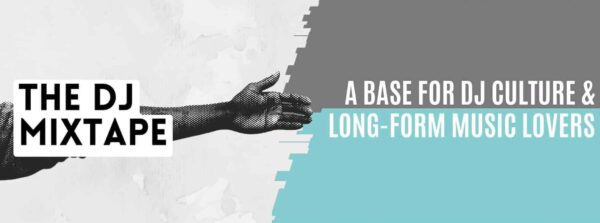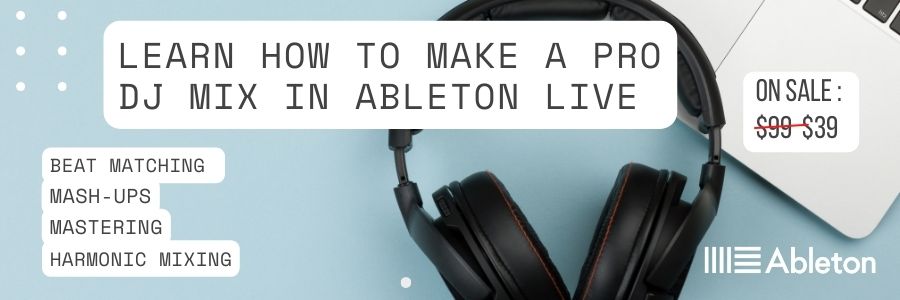We thought it’d be a nice idea to answer some of the common DJ questions we get asked and give you some DJ tips along the way. We’ve tried to be as honest and straight forward as possible and hopefully it’l help out anyone who is considering taking their first steps as a DJ. Let’s get to it…
What makes a good DJ?
A good DJ should always ask themselves what their objectives are as part of their preparation. These should be based on the type of job you are doing and what the person employing you requires.
A live peak time gig in a club will require you to read the crowd and keep people dancing, whilst playing music that is appropriate to the event. Alternatively, a gig on a radio show may require you to play a certain type of music with a completely different energy level to a club gig.

What do you need to be a good DJ?
Being a good DJ and a successful DJ are not always the same thing. To be a good DJ you need a broad set of skills surrounding the technical aspects of DJing. These can often include great track selection and the ability to read the dance floor. Good mixing skills are also essential, which include beat matching, E.Qing, using effects and knowing your song structures.
Successful DJs tend to have a good grasp of the technical aspects of DJing but also know how to market themselves. This is an essential skill to have if you want to promote yourself in what has become a really competitive industry over the last 10 to 15 years. Branding, building an online presence and networking are 3 key areas to focus on when planning your marketing strategy.

How can I be a unique DJ?
Being unique isn’t necessarily something that all DJs want or need to be. There are plenty of gigs that just don’t require a DJ to be unique. Instead, they need someone who is knowledgeable, reliable, and technically competent. Wedding/mobile DJs, event DJs and DJs playing at mainstream events could all fall under this category. (I’m generalising a bit here and it could be argued that some DJs playing these kind of events have an element of uniqueness to them.)
However, if you want to be the kind of DJ that people look to as a tastemaker, then you need to distinguish yourself from the rest. This can be achieved through your image and the way you look and dress. Deadmau5, Daft Punk and Claptone are great examples of this.
You may also focus on the way you perform to distinguish yourself. This could be done by developing a certain style of mixing that people identify you with. Some DJs create elongated mix transitions which rely heavily on track key and atmosphere, while others try to maintain the energy level on the dance floor with quicker, more punchier transitions.
Is it easy to learn DJ?
Technology has decreased the barriers to entry for aspiring DJs. It’s arguable that learning the basics of mixing back when vinyl was your only option was harder than syncing and transitioning music on todays digital gear.
Having said that, the fundamentals of DJ like track selection and playing the right record at the right time are still, and will always be the most important and arguably difficult skills to learn. Practice and experience are key to mastering them. It’s also easier now, more than ever to get DJ tips and tricks from a variety of online resources, which brings us nicely onto our next question.
How can I improve my DJ skills?
There are many ways to improve your skills and pick up DJ tips at the same time. Many argue that practicing and then building your confidence playing live are key. I also believe that recording yourself practicing and then watching or listening back to highlight your mistakes is a great way to improve quickly.
There are also a number of DJ courses you can take both online and in person. The great thing about online DJ courses is that you can take them at your own pace and dip in and out of them or focus on particular parts that relate to your specific interests. There are loads to choose from and I suggest looking for courses that give you feedback from the instructors and that have a community of DJs surrounding them that support each other.

How can I practice DJing?
This is quite a common question for newbie DJs and I tend to always give a similar answer. Keep it simple to start off with. You don’t need to buy a load of expensive gear to start practicing, just look for an affordable set up that suits your needs.
A laptop and a DJ controller is often the best option as most people already own a laptop and the software and controller can be picked up quite cheaply. The most important thing is to learn the basics of tempo matching and using the faders to start creating basic transitions. Most importantly, make it fun. Use tracks that you enjoy listening to and get to know the basics on the mixer.
How do DJs choose their music?
The best DJs choose their music based on feeling, meaning that they instinctively understand the energy in the room and know which track will maintain it or take things in a different direction. This instinct comes naturally to some more than others, but it’s definitely a skill everyone can learn through playing to live audiences on a regular basis.
For those less experienced DJs there are some tips for selecting your music. Just by looking at the demographic of your audience and seeing the music that has gotten the best reaction up til now is a safe bet. Also, flicking through your collection and seeing if anything jumps out at you can spark ideas. Most DJ software lets you review past sets so you can see what you played at other similar gigs.
How do DJs prepare their sets?
Preparing your set is a vital part of DJing and a good amount of time should be dedicated to this. However, preparing your set doesn’t mean that you select your music and track order and replicate that at the gig. DJing is about interaction and being versatile with your selections means that you can cater to the audience in front of you. The ability to change the direction of the music is key to being a successful DJ.

How many tracks should a DJ have?
This is one of the most common DJ tips we give out. “Not too few but not too many.” There’s a definite sweet spot somewhere in between but not having enough music with you is a pretty obvious error to make as a DJ, as you’ll end up playing some songs twice and nobody wants that. It’s also a bad move to have too many tracks with you. This is because it gives you way too many options to actually think about.
What you need to focus on instead is how long are you DJing for and how much music will you need to fill that time slot. Then double or triple that number to understand how much music to bring with you.
For example, a DJ may play 12 – 15 tracks in an hour so they should therefore be taking between 30 and 40 tracks for that 1 hour slot.
Should DJs make music?
The most successful DJs tend to make their own music. This is because having recorded music in your name acts as promotion for your DJ brand. Think how much attention a number one hit on Beatport is going to attract…. DJs also become involved with other sidelines like starting clubs nights or record labels to boost their brand.
However, it’s important to understand that being a music producer is an art form much like DJing. It has a steep learning curve and it can take years to get to the level where your tracks are dominating the dance charts.
We hope you enjoyed some of our DJ tips. If so, you may also like our post on DJing For Beginners
Also dont’t forget to check out our online course on putting together a pro DJ mix on Ableton







